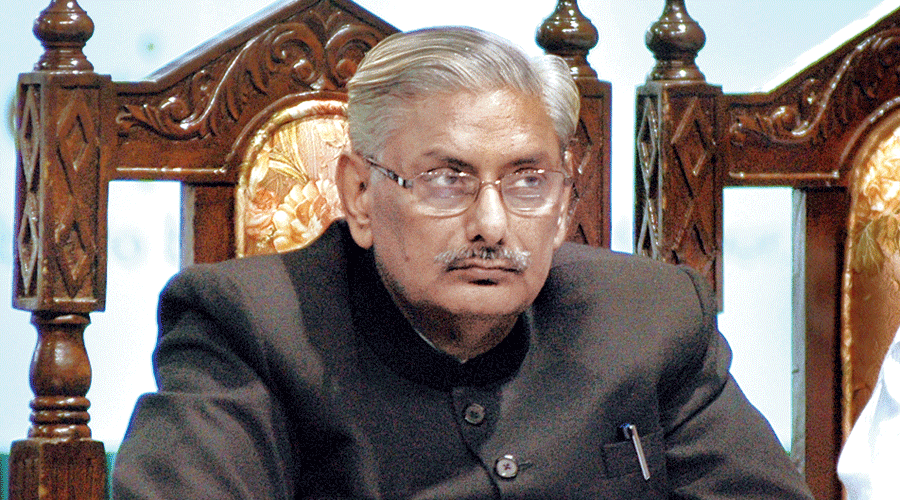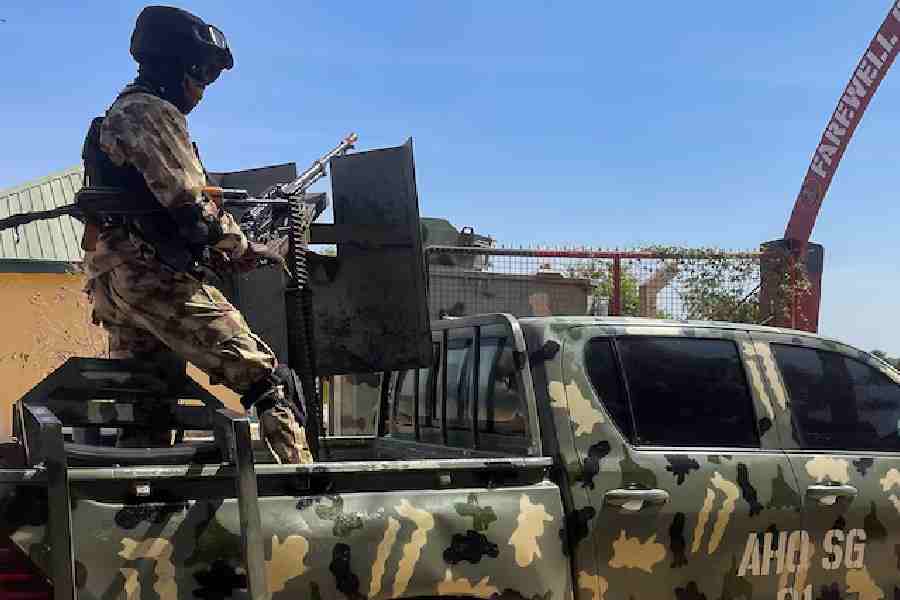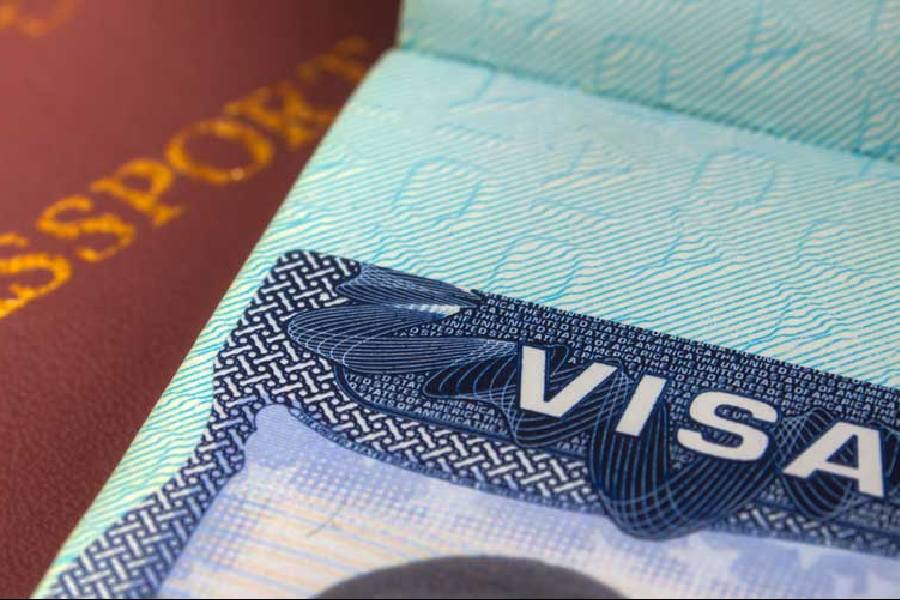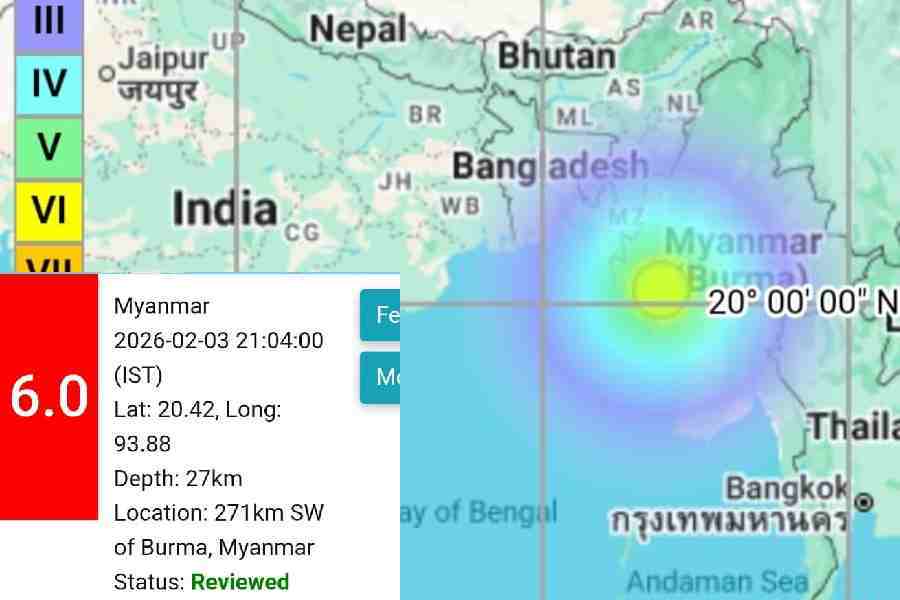The Supreme Court on Thursday said the “voice of dissent cannot be suppressed in a democracy” and declined to stay the Rajasthan High Court proceedings on the disqualification notices against 19 rebel Congress MLAs.
But the Supreme Court added that “whatever order is passed (by the high court) shall be ultimately subject to the outcome of this petition”.
Rajasthan Speaker P.C. Joshi, who had issued the notices to Sachin Pilot and 18 other rebels, had appealed against a high court directive restraining him from acting till Friday. He had sought a stay on the proceedings in the high court, which is due on Friday to pronounce on the dissidents’ challenge to Joshi’s notices.
While refusing Joshi’s plea, the Supreme Court bench of Justices Arun Mishra, Bhushan Gavai and Krishna Murari asked whether elected representatives had the right to question their party.
“While remaining in party can they not raise their voice? Else they will be disqualified? By that submission, party members cannot raise their own voice against their own party?” Justice Mishra asked senior advocate Kapil Sibal, who was appearing for the Speaker.
“The voice of dissent cannot be suppressed in a democracy. After all, they all had been elected by the people. Can they not express their dissent? They ought to raise their voice within the party. Issue is, whether voice of dissent can be shut down.”
Sibal replied: “But then they will have to explain (their actions). It is the Speaker who will decide, not any court. It is for them to explain. They should come back and say they were in a vacation, they are exercising free speech, etc.”
The “vacation” remark was an allusion to the rebels being put up in hotels at Manesar in BJP-ruled Haryana.
Earlier, Sibal had contended: “They (the rebels) conspired to destabilise a government formed by their own party. They have given statements to the media demanding a trust vote, pulling down government, etc…. This amounts to voluntarily giving up membership of the party.”
He had added: “They are in a hotel in Haryana, incommunicado.... What else can be construed?”
Justice Mishra observed: “No doubt, the Speaker has a right to disqualify. But there has to be a proper reason to disqualify.”
After hearing Sibal and senior lawyers Harish Salve and Mukul Rohatgi, who were appearing for the rebels, the court passed a brief written order and posted the next hearing to Monday.
“As the high court has already heard the matter after prolonged arguments and reserved the order, we are not staying the passing of the order, however, whatever order is passed shall be ultimately subject to the outcome of this petition,” a part of the order said.
Jurisdiction
Sibal had earlier contended that while the Speaker’s eventual decision on disqualification was subject to judicial review, “anything that happens before is not”.
Justice Mishra asked whether a court couldn’t intervene when a Speaker suspended or disqualified an MLA while proceedings were pending before a court.
Sibal said it could “but only when the Speaker disqualifies or suspends”.
He said the high court order ran counter to the Kihoto Hollohan judgment by a five-judge constitution bench in 1992 that said the courts cannot prevent the Speaker from going ahead in the early stages of a disqualification process under the anti-defection law.
Defying party
Sibal said the anti-defection law allowed a lawmaker to be disqualified from the House “if he has voluntarily given up his membership of such political party” or “if he votes or abstains from voting in such House contrary to any direction issued by the political party to which he belongs or by any person or authority authorised by it in this behalf without obtaining prior permission of such political party”.
He added: “The law can be extended to behaviour or conduct outside the House too.”
The bench asked on what grounds the disqualification of the 19 had been sought.
Sibal said: “They didn’t attend party meeting. They are indulging in anti-party activities. They gave interviews that they wanted a floor test. They are in a hotel in Haryana, incommunicado.”
Sibal said no whip had been issued to the rebels, only a notice had been issued by the party chief whip.
“So it’s a request to attend the meeting? If someone doesn’t attend the meeting, it is grounds for disqualification?” the bench asked.
Sibal said: “I (the Speaker) have to decide that. Neither any court nor any other body can decide that. Your Lordships cannot presume that disqualification will be ordered.”
He added: “It’s about a lot more than not attending a meeting; it’s about their anti-party activities.”
Rohatgi said the Speaker had in an oral submission before the high court agreed to defer the disqualification proceedings. “If the Speaker can himself agree to defer twice, why can’t he wait for another 24 hours?” he asked.
Salve too underlined that the Speaker had deferred the proceedings on his own twice in the past.
“Issues of jurisdiction and maintainability have been argued before the high court. Having appeared and argued there, why should he (the Speaker) now ask the high court not to decide?” Salve asked.










